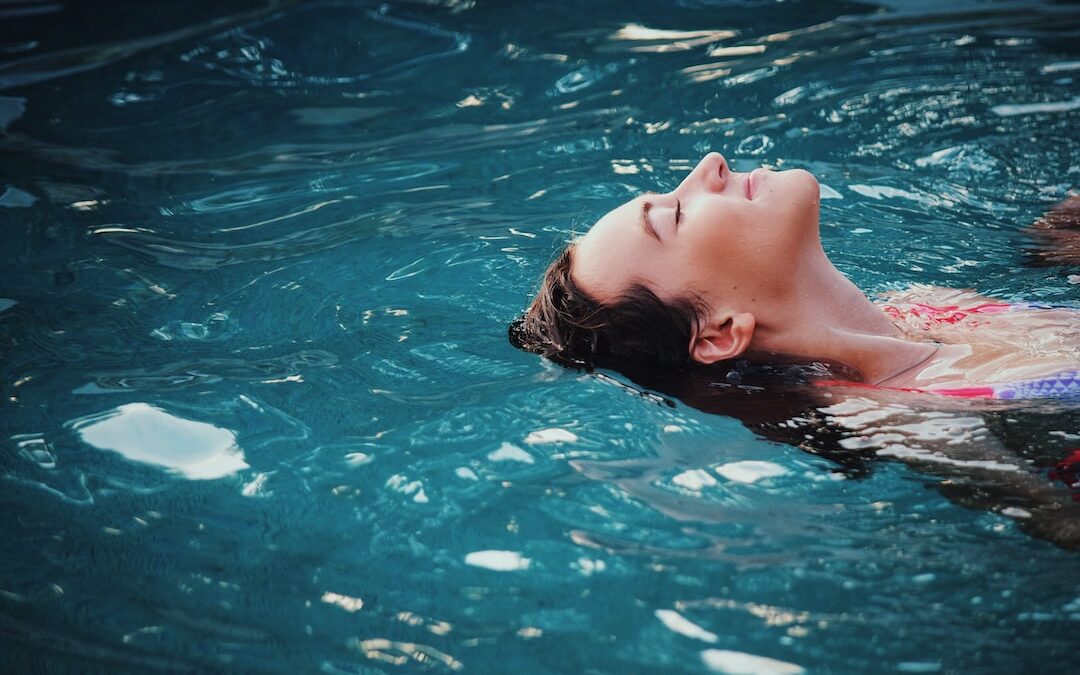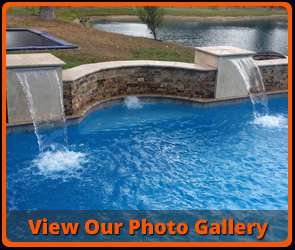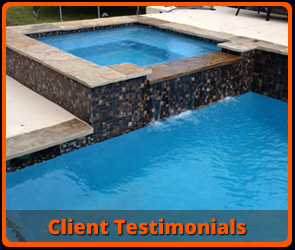Have you ever dreamt of having the perfect backyard oasis? One with a sparkling, crystal clear pool that is warm enough to swim in no matter what time of year it is? After all, swimming is the fifth most popular activity in the US, and you want to be able to enjoy it year-round.
If so, then learning how to heat a swimming pool might be just the thing for you. From knowing which methods are best suited for your climate and budget, to understanding alternative options like solar heating systems, we’ll walk you through all the basics of swimming pool heating.
We know that heating a swimming pool may seem daunting at first — but trust us, once you dive into our comprehensive guide today, it won’t take long before that shimmering paradise awaits.
What Is the Ideal Pool Water Temperature?
First and foremost, it’s helpful to understand what the ideal pool water temperature is. After all, in most areas of Texas, pools stay warm well through September or October, depending on where you live.
That being said, when it comes to ideal pool water temperature, there is no one-size-fits-all answer. The ideal temperature range for a pool can vary from person to person depending on the intended use of the pool and the individuals in it.
Generally speaking, many people find that a pool water temperature between 78 and 82 degrees is ideal for swimming and enjoying the water. All in all, it’s best to experiment with available settings until you’ve found a temperature that suits your personal preferences and needs.
The Benefits of Swimming Pool Heating
Swimming pool heating offers a lot of benefits, from allowing people to start using the pool earlier in the year, to extending its use through later seasons. With pool heating, anybody in your family can enjoy swimming even when the outdoor temperatures are cooler than desired.
With the proper heating system, you can adjust and regulate the water temperature, making it easier to find the right balance for comfort. Heating also helps maintain a consistent temperature when air temperatures are in flux. With more and more icy storms and cold weather passing through Texas these days, this could help extend the life of your pool.
Furthermore, a well-heated pool is safer as some diseases thrive in lower temperatures. With a heated swimming pool, there’s no need to worry about long-standing cold water that could lead to bacterial buildup or an infested environment that could make swimmers sick.
Finally, regular use of a heated swimming pool helps promote physical and mental benefits like improved strength and stress relief. The bottom line? Whether for family fun or personal wellness, there are numerous benefits of having a heated swimming pool.
How to Heat a Swimming Pool
Are you sold on the benefits of heating your swimming pool? Great! Now, it’s time to consider your options and learn how to heat a swimming pool. Generally, a heat pump or heater is used to heat the water in a swimming pool.
Heat pumps extract heat from the environment. They then transfer that heat to the pool water. This makes heat pumps energy-efficient options that also typically cost less than heaters which burn fuel like gas or oil to generate heat for your pool.
Before heating your pool, it’s important to have it professionally checked. Hiring a pool company in Katy, Texas can help ensure that any damage that may have occurred over winter is quickly identified and repaired before you start to heat your pool.
With all of that in mind, heat pumps aren’t your only option. Let’s walk you through the three most basic options for heating a pool in Texas.
Liquid Solar Pool Cover
A liquid solar pool cover is a product specifically designed to keep your swimming pool warm and energy efficient. It features liquid technology that creates a thin liquid layer that moves gracefully over the surface of the water. As it moves over the water, it uses heat from the sun to keep the pool’s temperature toasty warm.
By creating a thermal barrier over the pool, liquid solar covers also reduce evaporation. Thus, they’re widely considered more cost-effective than traditional solar blankets or pool covers. All in all, environmentally friendly, liquid solar covers help cut down on costly energy bills while providing you with longer swims in warmer water all year long.
Electric Pool Heat Pump
An electric pool heat pump is a great option for anyone who wants to heat their swimming pool without using an excessive amount of energy. The way it works is simple; the electric pool heat pump draws in warm air from the atmosphere and uses it to heat the water in your swimming pool.
It’s important to note that you need outside temperatures of at least 40 degrees for the electric pool heat pump to be effective. However, if you’re living in a moderate climate like Texas, this could be a great option for you.
Gas or Propane Pool Heater
Gas or propane pool heaters are powerful and efficient, but not cheap. Installation costs range from $500 to $1,500 and running the heater each month can cost up to $400. If you have some handyman expertise and spare time, you may save a few hundred or even thousands of dollars in installation fees by doing DIY work yourself.
How do they work? Pool water passes through the gas or propane heater while a combustion chamber burns gas and warms it back into the pool. This means that you need to ensure you have working gas lines on your property (and that’s usually where the increased costs come from).
What Is the Best Pool Heater?
So, what’s the best pool heater? It ultimately depends on your pool, your home, and your budget. The best option is to get an assessment from a local pool company. They’ll be able to take a look at your setup and recommend the best option.
However, the quickest way to heat a pool, regardless of where you live or how large your pool is, is by using a gas pool heater in conjunction with a solar cover or liquid solar cover. The gas pool heater heats the pool while the solar cover helps retain heat. This conserves energy while helping you save money and keeping your pool warm for longer.
Get Help With Swimming Pool Maintenance
Now that you know how to heat a swimming pool, you’ll likely need help keeping up with the maintenance of your heated pool. If you live in Katy, Richmond, Cypress, Houston, or beyond then we’re here to help you with everything pool-related.
At Sahara Construction and Custom Pools, we provide quality, consistent pool maintenance services with a range of options including vacuuming, tile treatments, chemical stabilizing, and more.
Give us a call for a free consultation so we can make sure that your optimal pool maintenance plan is put into place today.




